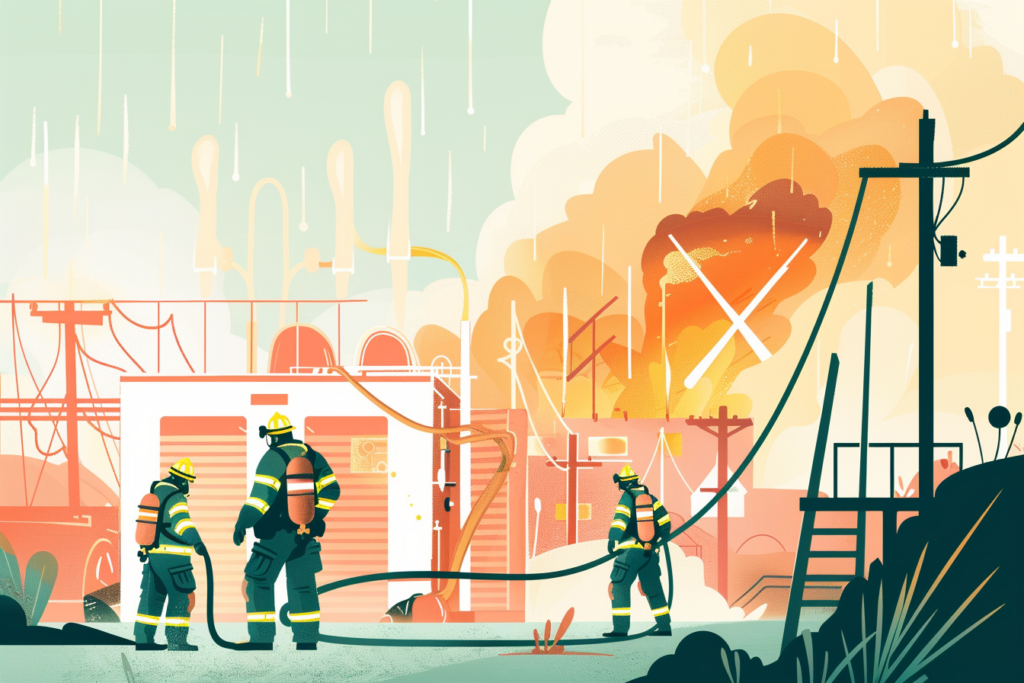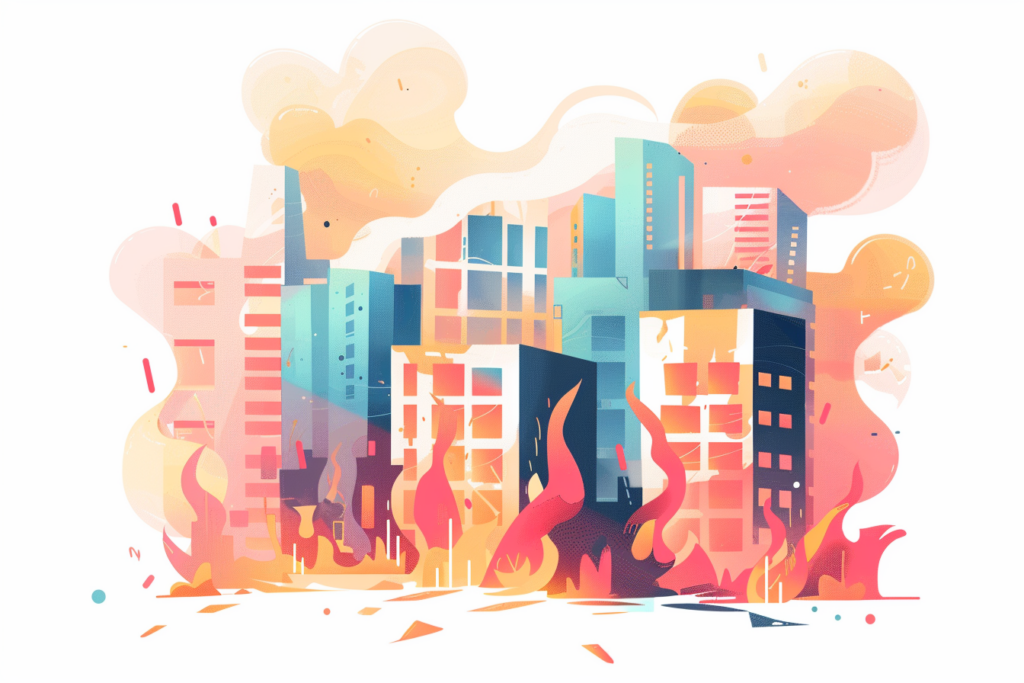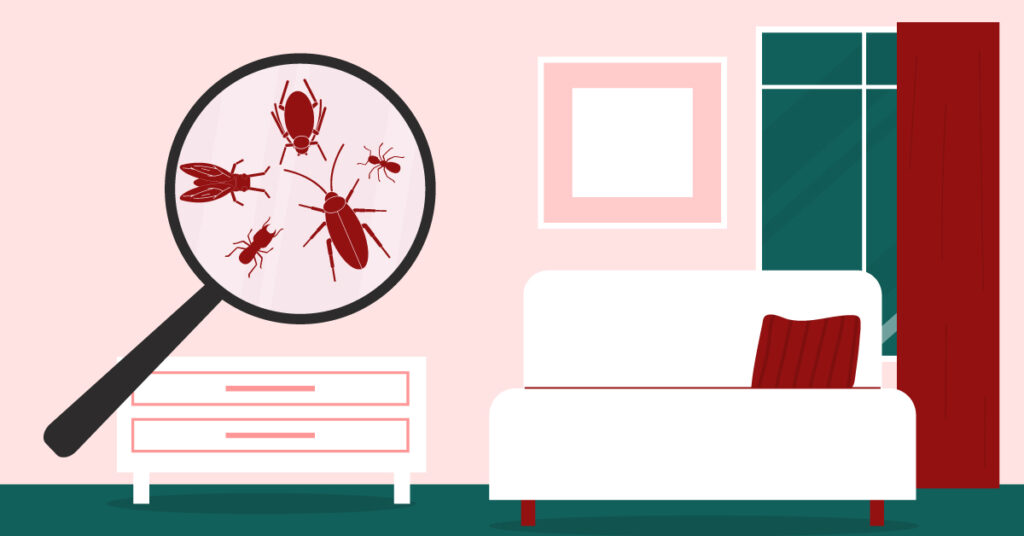Fire safety is an essential consideration for every homeowner. Fires can occur unexpectedly and spread rapidly, but with proper precautions, most are preventable. By implementing fire safety tips and maintaining a vigilant approach, you can protect your home, possessions, and, most importantly, the ones you love. Here are 12 crucial fire safety tips to enhance the safety of your home and be prepared in an emergency.
1. Install and Maintain Smoke Detectors
Smoke detectors are vital for protecting you against fires. Install them on every level of your home, inside bedrooms, and outside sleeping areas. Test them monthly to ensure they’re working correctly, replace batteries at least once a year, and change the detectors entirely every ten years or as the manufacturer recommends.
2. Plan and Practice an Escape Route
Develop a fire escape plan with two exits from every room, such as a door and a window. Make sure windows are not stuck, like with old paint or from lack of being opened regularly, and screens can be easily removed. Practice this escape plan with all household members twice a year, ensuring everyone knows how to escape quickly and safely.
3. Keep Fire Extinguishers Handy
Place fire extinguishers in key locations around your home, including the kitchen, garage, and nearby fireplaces. Ensure every adult and older child knows how to use them. Teach your children the PASS method.
4. Secure and Properly Use Electrical Devices
Inspect electrical cords regularly for wear and tear and replace them if necessary. Do not overload power outlets, and use power strips wisely. Always unplug appliances when not in use, especially heating appliances like irons and space heaters.
5. Safeguard the Kitchen
Never leave cooking unattended, as it’s a leading cause of home fires. Keep combustible materials like oven mitts, wooden utensils, and paper towels away from the stove.
If a grease fire occurs, which can happen easier than you want to believe, remember never use water to extinguish it—cover the pan with a lid or use a fire extinguisher.
6. Practice Safe Heating
If you are using a space heater or a different type of portable heater in the winter, make sure they are at least three feet away from anything that can burn, including curtains, bedding, and furniture.
Have your heating system and chimney cleaned and inspected annually by a professional to prevent chimney fires and carbon monoxide poisoning.
7. Be Cautious with Candles and Smoking

Never place candles on an unstable surface and keep them away from flammable materials, and never leave them burning unattended. If you smoke, do so outside and always make sure your cigarettes are completely extinguished in a sturdy ashtray. To be extra safe, it would be smart to have your ashtray filled with sand or water.
8. Store Flammable Liquids Properly
Store all flammable liquids, such as gasoline, paint thinners, and cleaning supplies, in approved, labeled containers and keep them outside the living area, preferably in a shed or detached garage.
9. Secure Your Home Against Wildfires
If you live in a wildfire-prone area, you must be extra vigilant. Create a defensible space around your home by clearing away dead trees, brush, and leaves. Use fire-resistant materials for roofing and siding, and cover vents and eaves with metal mesh to prevent embers from entering your home.
10. Educate Your Family
Teach everyone in your home about the dangers of fire and the importance of fire safety. Educate children about the hazards of playing with matches and lighters and ensure they understand the sound of smoke alarms and what to do when they hear one.
11. Reduce Clutter
A cluttered home can provide fuel for fires and hinder escape routes. Regularly declutter your home, focusing on hallways and near doors and windows, to ensure there is a clear, quick and safe exit in case of a fire.
12. Inspect Holiday Decorations
Holiday decorations, particularly lights, can pose fire risks. Inspect holiday lights yearly for frayed wires, broken sockets, and loose connections. Choose flame-retardant decorations, and never leave holiday lights on unattended.
Conclusion
Home fire safety is an ongoing commitment that requires vigilance and proactivity. By following these tips, conducting regular safety checks, and fostering a fire awareness and prevention culture, you can significantly prevent the fire risk and damage in your home.
Remember, in the event of a fire, prioritize the safety of all household members; possessions can be replaced, but lives cannot. Stay safe and prepared.
You might also be interested in How To Safely Extinguish An Electrical Fire: Expert Techniques




